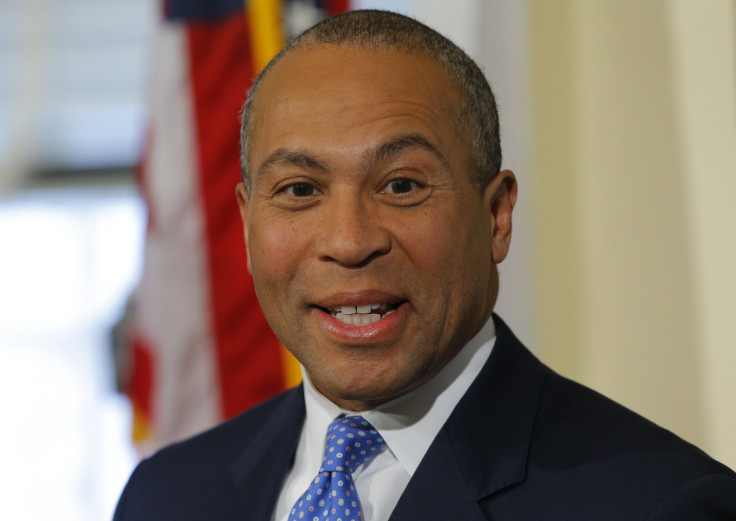Who's Still Running For The 2020 Democratic Presidential Nomination? 3 Candidates Drop Out Of Race

KEY POINTS
- As expected, Bernie Sanders won the most votes in New Hampshire, but Amy Klobuchar scored a breakthrough
- Joe Biden and Elizabeth Warren had poor showings in Tuesday's balloting
- Pete Buttigieg leads in the estimated delegate count
The New Hampshire primary may have failed to produce a clear frontrunner for the Democratic presidential nomination, but it has managed to winnow the field: Former Massachusetts Gov. Deval Patrick, Colorado Sen. Michael Bennet and businessman Andrew Yang announced Wednesday they would end their campaigns.
Vermont Sen. Bernie Sanders, former South Bend (Ind.) Mayor Pete Buttigieg and Minnesota Sen. Amy Klobuchar finished at the topm in Tuesday’s balloting, with 25.7%, 24.4% and 19.8% of the vote, respectively. Sen. Elizabeth Warren of Massachusetts and former Vice President Joe Biden finished a distant fourth and fifth, respectively.
The next contests are in Nevada on Feb. 22 and South Carolina on Feb. 29.
Former Democratic National Committee Chairman Howard Dean said Klobuchar’s finish “shocked the establishment.”
"All of a sudden, Amy Klobuchar is now a serious candidate,” he said on CNN.
"Hello, America," Klobuchar told supporters Tuesday night. "I'm Amy Klobuchar, and I will beat Donald Trump." She had portrayed herself as a reasonable alternative to progressives Sanders and Warren, and picked up support at the expense of Biden and Buttigieg. Before Friday’s debate, she had been polling around 6%.
In the delegate sweepstakes, Buttigieg leads with an estimated 23, followed by Sanders with 21, Warren with 8, Klobuchar with 7 and Biden with 6. A candidate will need at least 1,990 delegates to win the nomination on the first ballot at the Democratic National Convention in Milwaukee the week of July 13.
Patrick, who didn’t enter the race until November, cited his poor showing in Tuesday’s primary – he captured just 0.4% of the vote – but said was “not suspending my commitment to help – there is still work to be done. We are facing the most consequential election in our lifetime.”
Patrick skipped the Iowa caucuses and had expected strong showings in New Hampshire, a neighboring state, and South Carolina, which has a large African American population. He was the last candidate of color remaining in a field that had been the most diverse ever in U.S. presidential politics.
Yang, who based his campaign on providing a minimum monthly income to every American of $1,000 and captured 2.8% of Tuesday’s vote, said it was “a tough night.”
Yang said he would support whoever the eventual nominee is but would not throw his support behind any of the remaining contenders just yet.
.@AndrewYang: "No endorsements right now, though other candidates have been reaching out to me over the last number of hours." pic.twitter.com/dZyJkCADuN
— The Hill (@thehill) February 12, 2020
“Tonight wasn’t our night,” Bennet tweeted in ending his campaign. He had captured just 0.3% of the vote.
I love our country. I love the idea of democracy. And I want to pass it on to the next generation.
— Michael Bennet (@MichaelBennet) February 12, 2020
I feel nothing but joy tonight as we conclude this campaign and this chapter.
Tonight wasn’t our night. But New Hampshire, you may see me once again.
President Trump, meanwhile, whined no one was paying attention to his showing in the Republican primary.
Trump captured 85.6% of the Republican primary vote, with former Massachusetts Gov. Bill Weld garnering just 9.2%.
© Copyright IBTimes 2025. All rights reserved.






















